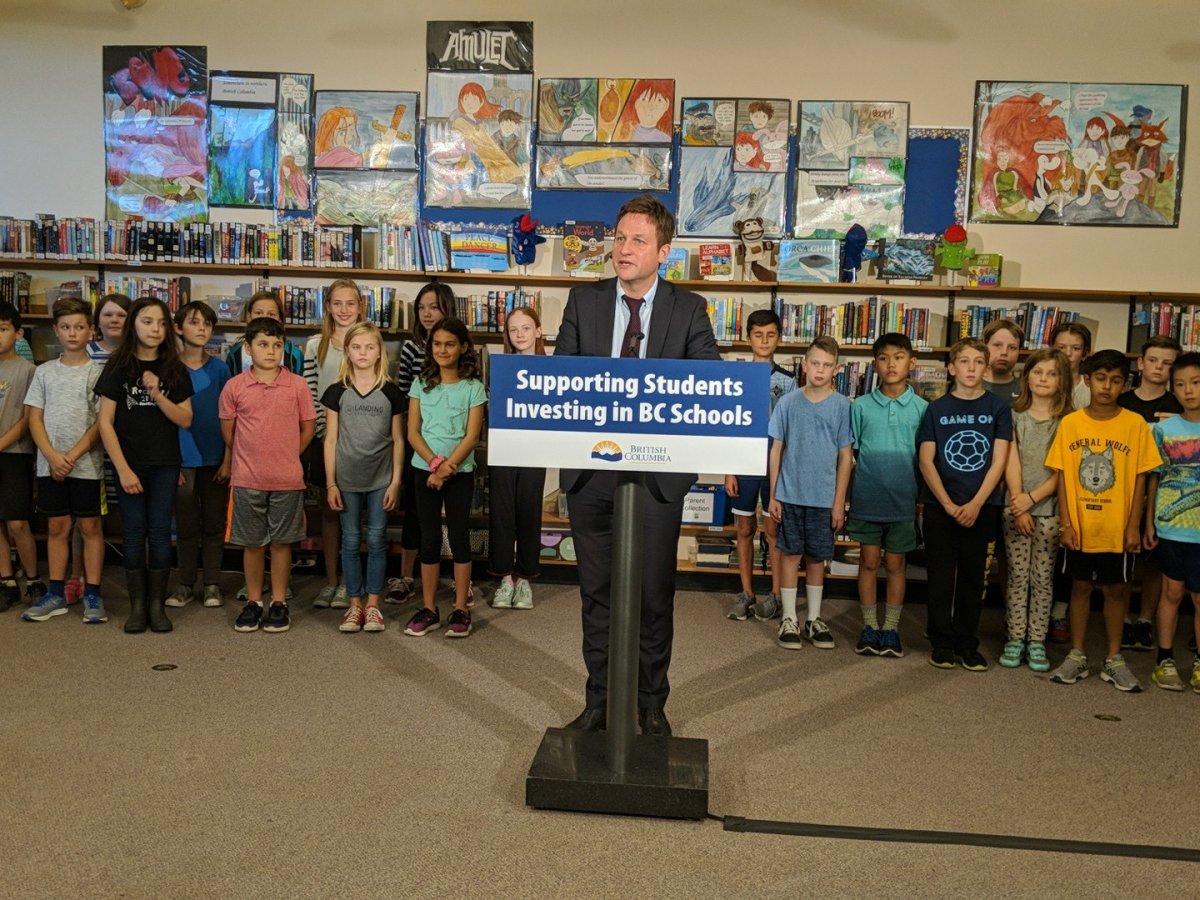The B.C. government is not yet ready to announce changes to the province’s funding model for the education system.

Education Minister Rob Fleming announced Wednesday morning a series of working groups that will help address controversial issues within the funding model, including support for vulnerable students and special needs students.
Fleming released a report done for the government to look into the funding model.
“We want to make sure all students are getting the supports they need, no matter where they live,” Fleming said.
“I want to thank the panel for helping define the challenges and identify paths forward. Now it’s up to all of us who care about students to deliver solutions. Given the scope of the recommendations, we now need to work with our partners to better understand the benefits for students, parents, educators and school districts. It’s critical we get this right for our kids.”
The funding model review has led to 22 recommendations. The first recommendation is that the province fund special needs first and then allocate the remainder of the budget on a per-student basis.
The working groups will now report back in the fall of 2019. No changes will be made to the existing funding model for the 2019-20 school year.
One of the challenges facing a change to the funding model is the upcoming negotiations between the B.C. Teachers’ Federation (BCTF) and the province. Fleming says he hopes to keep the bargaining separate from changes to the funding model.
“I don’t there is going to be any overlap,” Fleming said. “These are separate things. Concluding successful bargaining is something that is very important to me and our government.”
BCTF President Glen Hansman says he is happy to see the government taking a slower approach to the funding model and not implementing any decisions right away.
“The entire education community needs to have an informed conversation about these recommendations, and I welcome the opportunity to do so over the coming year. I hope that the process will lead to changes that enhance both services to students and teachers’ working conditions, regardless of where they live and work in our province,” Hansman said.
Hansman said significant gaps exist in services for all students because many school districts do not have collective agreement for language staffing minimums or class composition, and face ongoing funding challenges.
“To address these inequities across the province, B.C. needs to expand the protections for working and learning conditions, not remove them as some school districts seemed to suggest in the funding model review. Removing or reducing recently restored protections for class sizes, class composition, and staffing ratios would be a step backwards for students and teachers.”
The funding model working groups will be formed next month. The goal will be to see if the recommendations from the panel are realistic and how the ministry can maximize dollars invested in the classroom to improve services and ensure fast-growing districts get the resources they need.
“I think what we are interested in is seeing if we can have something that recognizes the scope of vulnerable kids that currently get nothing,” Fleming said. “We have all this data in government that we don’t particularly use around low income incidents and poverty in certain districts.”
B.C. Green MLA Sonia Furstenau says the province needs to look at increasing overall education funding. She says K-to-12 funding as a percentage of provincial GDP fell 25 per cent from 1999 to 2016.
WATCH: PALS school for children on autism spectrum

“This report makes clear that education funding practices in our province have fallen short of providing students and teachers with equitable opportunities to thrive,” Furstenau said.
“Equity means that we must meet the needs of our most vulnerable students. As a teacher, I know how lack of resources can impact kids’ opportunities to succeed, both in school and once in the workforce. In particular, we need to do a better job of supporting students with special needs. B.C.’s public education funding should provide each student with the support they need to be successful.”




Comments